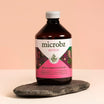Irritable Bowel Syndrome (IBS) is a common digestive disorder that affects millions of people worldwide. According to recent statistics, it is estimated that 10-15% of the global population experiences symptoms of IBS at some point in their lives. Despite its prevalence, the exact cause of IBS remains elusive, leaving many sufferers frustrated and searching for answers.
The good news is that research into IBS and its connections to gut health has been growing steadily. Emerging studies suggest that gut bacteria and the gut microbiome play a significant role in the development, management, and symptom relief of IBS. This brings a promising avenue for individuals seeking relief from their symptoms—through improving gut health and fostering a balanced microbiome.
What is IBS?
IBS is a functional gastrointestinal disorder, meaning that while structural issues are not typically present, the symptoms can be debilitating. Common symptoms include:
- Abdominal pain and cramping
- Bloating
- Diarrhoea and/or constipation
- Gas
- Mucus in stools
- Changes in bowel habits
These symptoms can vary from person to person and are often exacerbated by lifestyle factors, stress, and dietary choices.
The connection between gut health and IBS
The gut microbiome is a complex community of trillions of microorganisms that live in the digestive tract. These microorganisms play a vital role in maintaining gut health and overall wellbeing. However, when the balance of these microbes is disrupted it can lead to a range of health issues, including IBS.
Studies have shown that individuals with IBS often have imbalances in their gut microbiome. For example, research from the World Journal of Gastroenterology highlights that individuals with IBS tend to have higher levels of harmful bacteria like Enterobacteriaceae and Clostridium difficile, while beneficial bacteria such as Bifidobacterium and Lactobacillus are often underrepresented. This imbalance can contribute to increased intestinal permeability, inflammation, and disrupted gut function.
The role of probiotics in managing IBS
One of the ways to restore balance in the gut microbiome is through the use of probiotics. Probiotics are live microorganisms that, when consumed, can provide health benefits by improving the gut’s microbial diversity and enhancing the immune response. Research has shown that certain strains of beneficial bacteria can help manage symptoms of IBS.
A study published in The American Journal of Gastroenterology found that specific strains of probiotics, such as Lactobacillus and Bifidobacterium, were effective in alleviating IBS symptoms by reducing inflammation and promoting healthy digestion. These probiotics work by improving the balance of beneficial bacteria in the gut and supporting the gut’s natural barrier function.
At microbz, our probiotic supplements are 100% natural, sourced from microbes harvested from soil. Our products contain 15 different strains of beneficial bacteria, offering a diverse and effective solution for improving gut health. By delivering these helpful microbes directly into your digestive system, our probiotic can help support a balanced and resilient gut microbiome, reducing the discomfort and distress associated with IBS.
Food and lifestyle changes for IBS relief
While probiotics are a key part of managing IBS, a comprehensive approach to gut health also involves dietary and lifestyle changes. A low FODMAP diet has been shown to be effective for many individuals with IBS. FODMAPs, which stand for Fermentable Oligosaccharides, Disaccharides, Monosaccharides, and Polyols, are short-chain carbohydrates that can be poorly absorbed in the small intestine, leading to symptoms like bloating and gas.
Research from Frontiers in Nutrition highlights how reducing FODMAP intake can help alleviate IBS symptoms by minimising fermentation in the gut and reducing the production of gas. Alongside a low FODMAP diet, incorporating more natural, unprocessed foods and focusing on whole, fresh produce can further support gut health.
Additionally, stress management plays a crucial role in maintaining gut health. Chronic stress has been shown to negatively impact the gut-brain axis, exacerbating IBS symptoms. Techniques such as mindfulness, meditation, regular physical activity, and adequate sleep can contribute to reducing stress levels and improving overall digestive function.

The importance of soil-derived microbes in probiotic supplements
Microbz’s commitment to natural, soil-derived microbes is rooted in the belief that nature holds the key to our health. Research from soil biology and biochemistry demonstrates that microbes harvested from soil are incredibly diverse and rich in beneficial strains that promote not only gut health but also immune function and overall vitality.
These soil microbes have evolved over millennia to thrive in a natural environment, meaning they are more effective in interacting with our bodies’ own microbial ecosystems. By using such a rich and varied source of beneficial microbes we create probiotics that help foster a resilient gut microbiome—essential for managing and relieving IBS symptoms.
Final thoughts
IBS can feel isolating and overwhelming, but it’s important to remember that there are many avenues for support. Through natural methods, including probiotics, dietary changes, and stress management, individuals can take control of their gut health and reduce the frequency and severity of IBS symptoms.
We’re here to support you on your journey to better gut health. Let your gut take care of you—because when it’s balanced, it can thrive and so can you.







